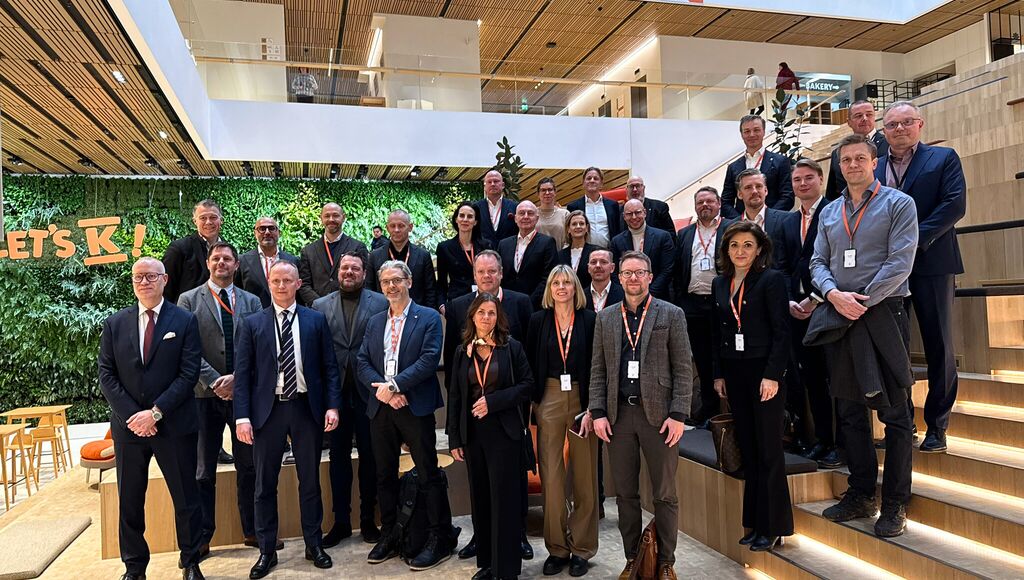
Fostering resilience through collaboration: Lessons from Roschier’s crisis preparedness delegation
Insights|January 29, 2025
Together with Stockholms Handelskammare, we organized a two-day delegation focused on strengthening public-private collaboration to ensure readiness for potential crises. By facilitating visits to key organizations and fostering dialogue between private companies and public institutions, the delegation explored how cooperation builds resilience in an increasingly uncertain world.
In addition to examining crisis preparedness within Finland, the delegation also focused on cross-border cooperation between Finland and Sweden. At Hanasaari Cultural Centre, Gunvor Kronman provided valuable insights into the historical background of Finnish-Swedish collaboration and how it has evolved over time. She highlighted how the traditional “big brother-little brother” dynamic – where Finland was often viewed as following Sweden’s lead – has started to shift. Today, Sweden is increasingly looking to Finland for guidance on preparedness practices and methodologies, recognizing Finland’s strengths in areas like crisis readiness and resilience planning.
The delegation included representatives from Roschier’s network, clients, and staff, who visited critical sites like the Port of Helsinki, Kesko, WithSecure, and Nokia, among others. These visits highlighted practical examples of how organizations are preparing for disruptions – from maintaining supply chains to addressing cybersecurity threats.
Key takeaways from the delegation
The value of multi-agency collaboration
At the Port of Helsinki, CEO Ville Haapasaari and Piia Karjalainen, CEO of the Finnish Port Association, emphasized the importance of Finland’s unique public-private partnership (PPP) model. This framework involves 1,500 companies working together to ensure operational continuity during crises. Joint training sessions and shared situational awareness were highlighted as essential components of this cooperation.
Strengthening supply chain resilience
At Kesko, Lasse Luukkainen, EVP Legal & Sustainability, and Ilkka Niemi, Chief Audit and Risk Officer, demonstrated how robust logistics and emergency preparedness safeguard essential services. The company collaborates with the National Emergency Supply Agency to conduct shared crisis simulations, ensuring quick responses to potential disruptions.
Preparing for modern threats
At WithSecure, CEO Antti Koskela explained how public-private partnerships have enabled rapid responses to geopolitical cyber threats. Christine Bejerasco, who shared insights into modern cyberattack trends such as ransomware funded through cryptocurrencies, emphasized the importance of IT hygiene and collaboration with public agencies like Traficom.
Total defense as a national strategy
Finland’s Total Defense System – discussed by Jyrki Katainen and Tommi Nordberg – integrates civilian and military readiness to address modern challenges. This approach involves strategic partnerships with private companies and highlights the need for ongoing investment in preparedness during peacetime.
Advancing network security
At Nokia, Liliann Miche, Head of Network Security Research, Mika Wendelin, Head of Product Security Office, and Jari Laiho presented advancements in network security and defense communications. They highlighted innovative solutions like the 4G/5G “network in a box” and discussed emerging challenges in the 6G era – including the role of AI and decentralized systems.
Why collaboration matters in crisis preparation
Crises rarely respect organizational boundaries. Whether it’s a cyberattack, natural disaster, or geopolitical conflict, the impacts often cascade across sectors. As highlighted during the delegation, effective collaboration between public and private entities is not just a best practice – it’s a necessity.
Shared training, information exchange, and joint problem-solving ensure that all parties are better equipped to handle disruptions. These partnerships also foster innovation, as demonstrated by the organizations visited during the delegation.
Building knowledge and preparing for the future
The delegation provided a platform for knowledge exchange, offering valuable insights into how organizations can prepare for crises by learning from others. By observing real-world examples of cooperation, participants gained tools to enhance their own preparedness and resilience. For Roschier, this deepened its understanding of the operational challenges faced by its clients and can now better support them in developing robust crisis management strategies. This also reaffirmed the importance of cross-border partnerships, where Finland and Sweden can work together to strengthen regional security and readiness through shared expertise and innovative practices.